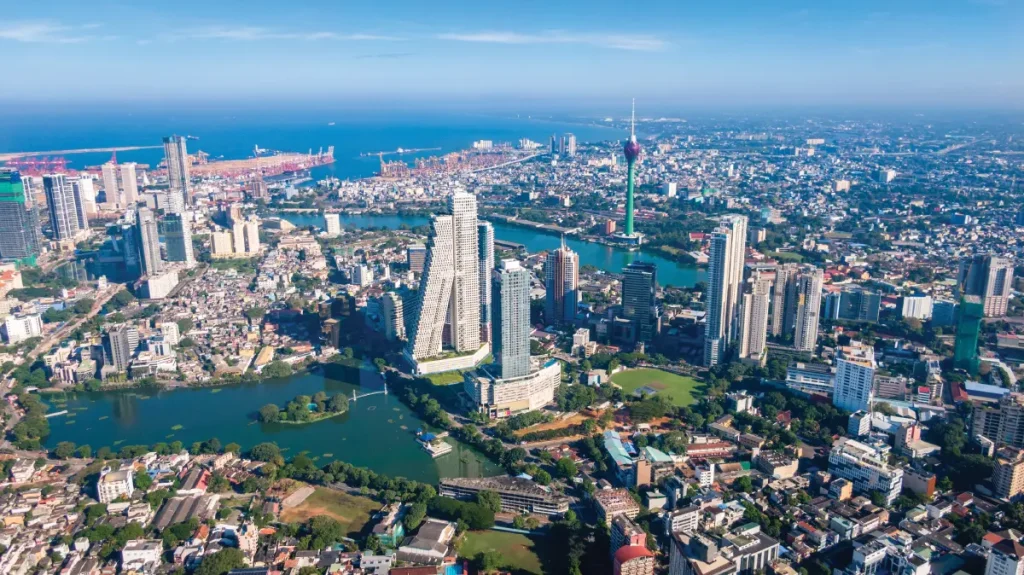Experienced industry expert Shaun McCamley explores the intricate background of Sri Lanka’s casino sector during a period when the nation is gradually working toward establishing an effective regulatory structure.
Sri Lanka’s casino landscape presents a colorful yet controversial history, closely tied to political dynamics, economic developments, and tourism plans. Casinos began appearing in Colombo in the late 1970s and early 1980s, primarily aiming at international visitors. Unlike many neighboring countries, Sri Lanka lacked a structured casino licensing system, instead offering “entertainment licenses” under the Betting and Gaming Levy Act of 1988. This approach fostered a legal grey area where casinos thrived, but it lacked the robust regulatory clarity necessary to attract institutional investments.
Nonetheless, Colombo emerged as a modest casino center, featuring establishments like Bally’s, Bellagio, and Marina, which provided a mix of table games and entertainment options mainly catering to high rollers from regions like India, China, and Southeast Asia. However, constant regulatory changes, political opposition, and public disdain for gambling have significantly hindered the sector’s growth. A 2013 initiative to formalize the industry and attract integrated resort investments—akin to those in Singapore and Macau—was derailed due to a governmental shift, leaving Sri Lanka’s casino industry relatively small, under-regulated, and unable to maximize its tourism potential.
Regulatory Challenges and Missed Chances
One of the primary hurdles for the Sri Lankan gaming sector has been the absence of a cohesive and transparent gaming law. Operators seek clarity concerning taxation, licensing fees, and authorized gaming activities. Yet, successive governments have oscillated between promoting gaming as a revenue and tourism booster and resisting it due to ethical concerns. In 2021, efforts were made to finally legalize and regulate casinos with a formal licensing system and a proposed 15% gaming tax on turnover. Unfortunately, the implementation has been slow, leaving operational clarity elusive.
Future of Brick-and-Mortar Gaming
Despite these obstacles, Sri Lanka maintains untapped potential. Its advantageous location, English-speaking populace, and premier tourism offerings position it as a potential regional gaming hub—provided the government establishes a transparent and investment-friendly regulatory environment. There are several key opportunities outlined below that could be realized through a consistent legal framework without regressive political influences.
Online Gaming: A Missed Opportunity
The online gaming sector is experiencing rapid global growth, particularly in Asia, driven by mobile technology, better digital payment options, and increasing consumer interest. However, Sri Lanka trails in this digital transition. Current laws ban online gambling, and local ISPs block access to international gaming sites, forcing players to utilize unregulated offshore platforms with no legal protections or tax benefits for Sri Lanka. To modernize its gaming landscape, policymakers should consider the controlled legalization of online gaming, including tightly regulated licenses for online casinos and sportsbooks.
The Rise of Social Gaming
In light of the ban on real-money online gaming, the social gaming sector remains a significant opportunity for growth. Social gaming platforms, which offer free-to-play experiences simulating real casino environments, are flourishing globally, leveraging in-app purchases and social engagement without requiring cash wagering. For Sri Lankan operators, this low-risk model allows for broad engagement and data insights while potentially serving as a testbed for future transitions to real-money gaming should regulations shift. With a growing smartphone market, social gaming can attract a new generation of casual players.
Sri Lanka’s casino industry is at a critical crossroads. The legacy of informal operation and ambiguous regulations has left it vulnerable and lagging behind regional competitors. However, robust opportunities to cultivate a vibrant tourism-driven gaming sector exist—if the government implements clear, modern policies. A better online gaming strategy could offer fresh avenues for sustainable revenue and community engagement in this evolving landscape.



